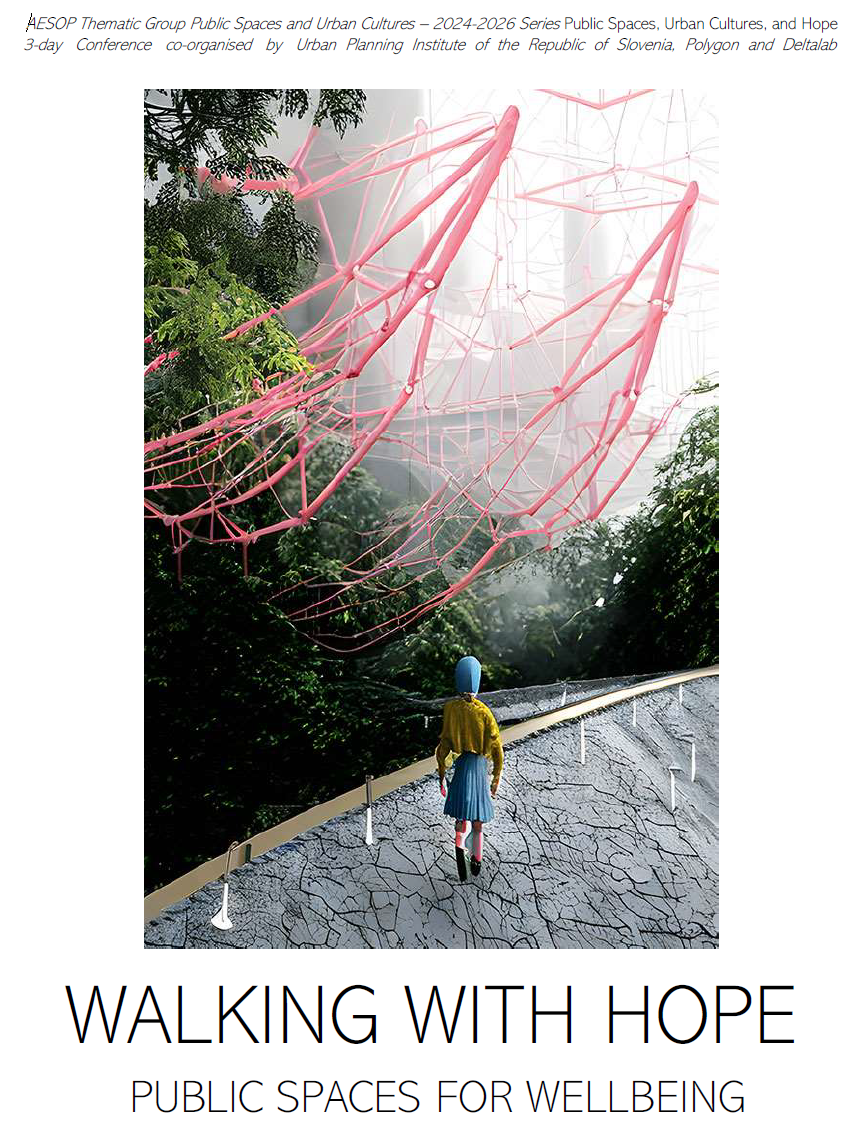
Valenetina Gulin Zrnić sudjelovala je na konferenciji AESOP tematske grupe Public Spaces and Urban Culture, a u organizaciji Urbanističkog instituta Republike Slovenije, udruge Polygon – Centar za kulturna istraživanja i razvoj projekata te Sveučilišta u Rijeci DELTALAB – Centar za urbanu tranziciju, arhitekturu i urbanizam.
Konferencija se odvijala u tri grada – Ljubljani, Rijeci i Cresu, a tijekom trodnevne konferencije (16.-18. lipnja 2025.) pod naslovom “Urban Cultures, Public Space, and Hope” održano je 28 predavanja kolega iz područja urbanog planiranja, arhitekture, urbanog dizajna, krajobrazne arhitekture, umjetnosti, povijesti umjetnosti i kulturne antropologije.
Valentina Gulin Zrnić:
Walking ethnographies: cultural anthropological steps along Zagreb streets (sažetak)
Within the current cultural anthropological project on urban futures, walking and hope have been introduced into urban research both as conceptual frameworks and methodological approaches. Walking is not merely a habitual movement between two locations but it constitutes a way of knowing that creates spatialized, temporalized, cognitive, embodied, affective, contextualized, interactive and responsive experiences which construct our everyday life and subjectivities. Hope is one of many futural orientations, a specific teleoaffect of the „vernacular timespace“, and, much like walking, hope is always in motion, „a tendency, towards something“ (Bryant and Knight), as well as a method of living in indeterminacy (Miyazaki).
This presentation combines theoretical reflections with an emphasis on walking ethnographies as a research technique in cultural anthropology as well as in the boprader fields of the humanities and social sciences. Walking as a method opens up new sets of questions and associations, evokes memories and generates to new urban imaginaries. In walking ethnographies, there is a potential to capture many of the dimensions of human experience while „going along with“ (Ingold) and being in and through urban atmospheres (Pink and Sumartojo).
Presenting various examples, we will walk through the streets and squares of Zagreb immersed in a protest march and religious procession, among colorfully decorated festival streets, or along ruined post-earthquake streets while discussing aspects of affective capital, urban diversity, spatial justice and political subjectivity. This presentation draws upon a decade of doing walking ethnographies and is grounded in current research project “What kind of cities do we want? Contemporary transformations of urban visions, practices and ethics” (NextGenerationEU) at the Institute of Ethnology and Folklore Research in Zagreb (www.citymaking.eu).
